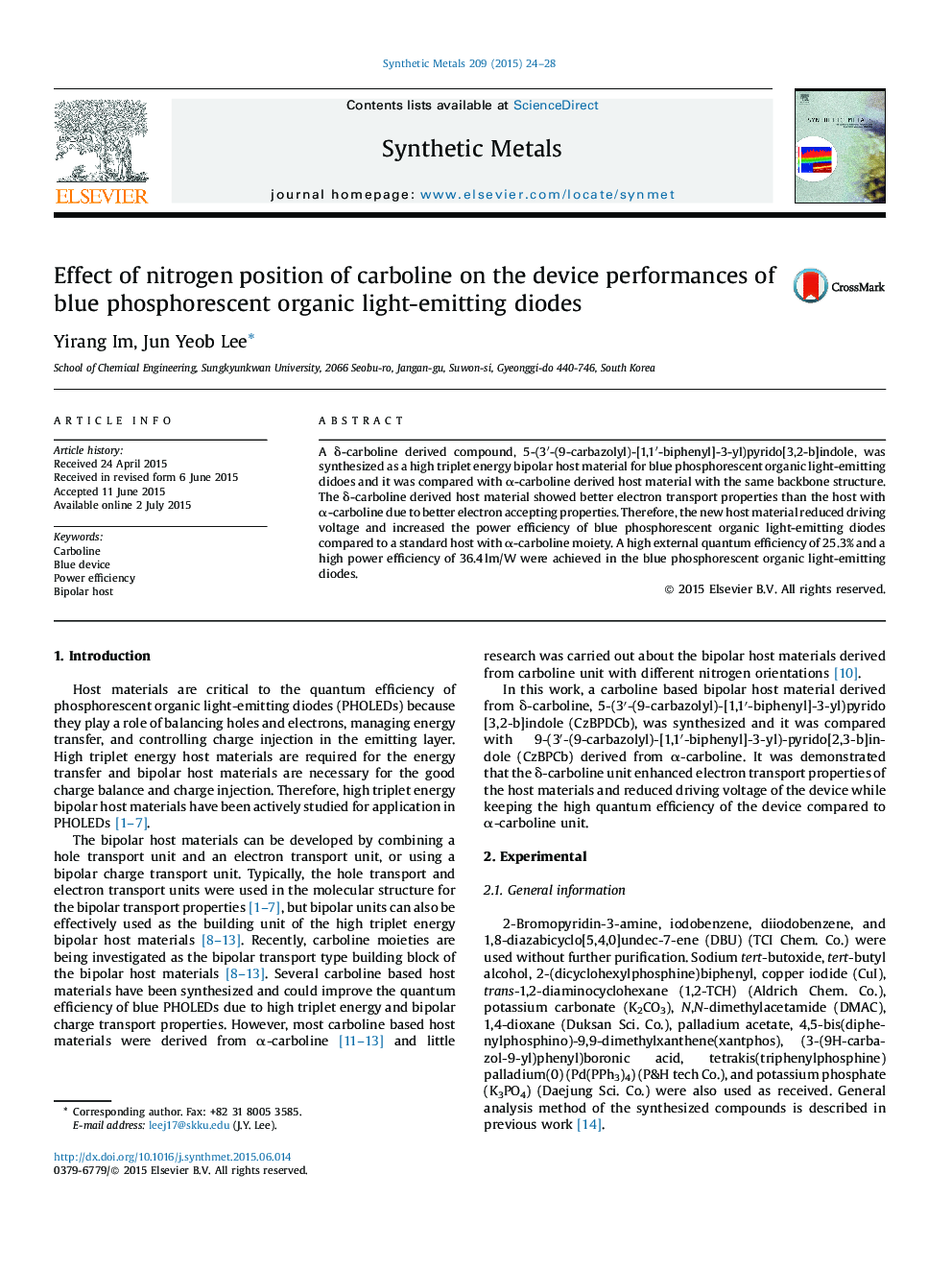| Article ID | Journal | Published Year | Pages | File Type |
|---|---|---|---|---|
| 1440467 | Synthetic Metals | 2015 | 5 Pages |
•Better charge injection by δ-carboline than α-carboline.•Low driving voltage and high power efficiency by carbazole–carboline compound.•High triplet energy bipolar host material for blue phosphorescent organic light-emitting diodes.
A δ-carboline derived compound, 5-(3′-(9-carbazolyl)-[1,1′-biphenyl]-3-yl)pyrido[3,2-b]indole, was synthesized as a high triplet energy bipolar host material for blue phosphorescent organic light-emitting didoes and it was compared with α-carboline derived host material with the same backbone structure. The δ-carboline derived host material showed better electron transport properties than the host with α-carboline due to better electron accepting properties. Therefore, the new host material reduced driving voltage and increased the power efficiency of blue phosphorescent organic light-emitting diodes compared to a standard host with α-carboline moiety. A high external quantum efficiency of 25.3% and a high power efficiency of 36.4 lm/W were achieved in the blue phosphorescent organic light-emitting diodes.
